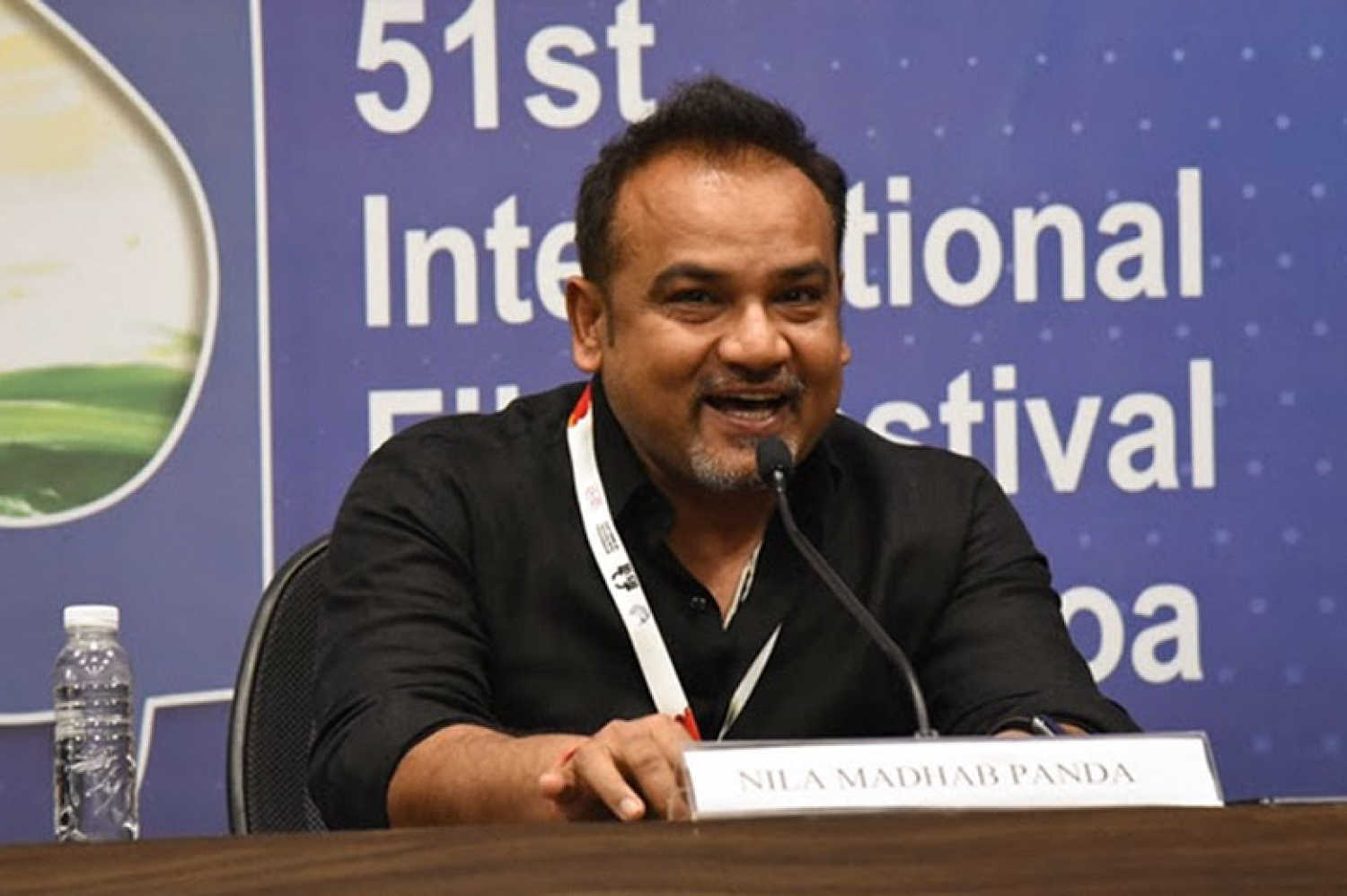The award winning filmmaker was speaking at a press conference following the screening of his film, Kalira Atita (2020) at IFFI
IFFI: Climate change is a reality and it’s high time we act, says Nila Madhab Panda
New Delhi - 22 Jan 2021 22:05 IST


Our Correspondent
Director Nila Madhab Panda’s Odiya film Kalira Atita (2020) is being screened at the ongoing 51st International Film Festival of India (IFFI), Goa.
The non-feature film looks at the impact of climate change and tracks the journey of Gunu, a young man, who travels to his village, Satavaya, which has been devastated by a cyclone. Confronting his tragic past, he tries to come to terms with the fury of nature.
Speaking about the film, Panda said, “I have seen with my own eyes, how, over the years, the sea had engulfed three villages in Coastal Odisha. In my films, I am giving a reflection of reality and what I have seen, not what people like to see. I don’t believe in balancing things when the reality is in front of me. In Kalira Atita, I have tried to capture the emotional impact of climate change through the story of one single man who is a victim of it.”
Panda has won several awards for making films on socially relevant subjects. His first feature I am Kalam (2010) won 34 international awards including a National Award. His other acclaimed films include Jalpari (2012), Kaun Kitney Paani Mein (2015) and Kadvi Hawa (2017).
The idea for his latest film originated from a news report about a hand pump in seawater. “Once in the year 2006, I saw a news report where I saw a 10-foot hand pump in seawater. Usually, we see them inside villages. But there was no village in that picture, only the remnants of one, which was scary. I tried to collect more information. At that time, no one was ready to believe that it was due to sea level rise. But eventually, I started studying the area in coastal Odisha and found that out of seven villages, four were already consumed by the sea and the rest three were already under threat. It turned out that in the next thirteen years, the remaining three villages too were engulfed by the sea," he said.
His film brings to light the traumatizing emotions of a man who lives in the past after his village becomes enveloped by the sea. “People usually look only at the economic and physical impact of climate change. But the protagonist in my film is a victim of the oft-overlooked yet most important emotional impact. He comes to think that his family and his village have gone to the sea. He starts believing that there awaits a better world for him. My film focuses more on the emotion of that man. Kalira Atita means yesterday’s past; my protagonist is literally living in yesterday’s past.”
He said, “When we progress, we do not realize what impact we are leaving on the world. Because of us, many innocent lives suffer. The protagonist in my film is one such victim.”
Discussing the narrative of his film, Panda said, “The shock factor is needed especially when dealing with serious subjects like climate change. Only then will people realize the consequences. Climate change is a reality and it’s high time we get conscious and act.”
Related topics
IFFI





